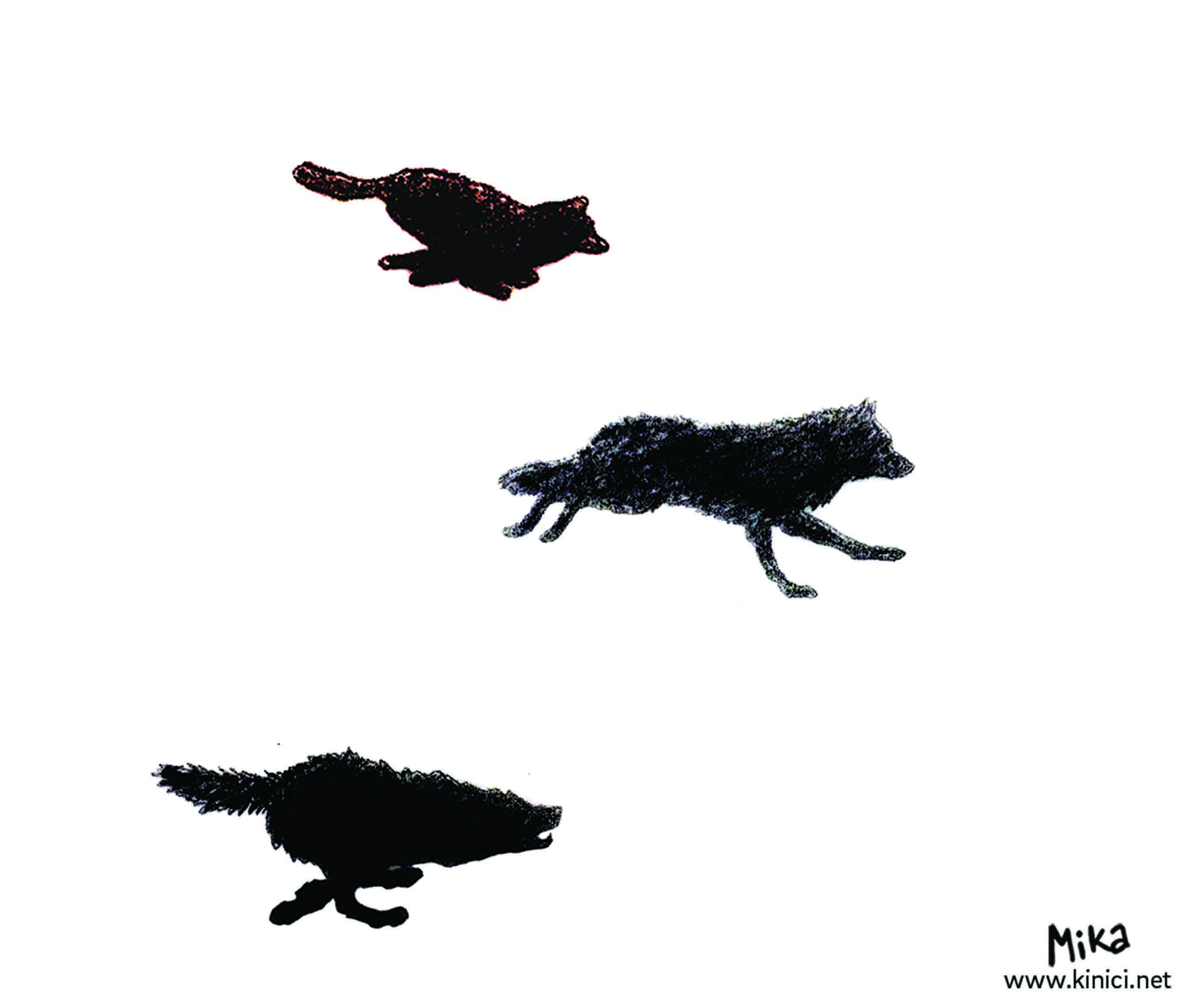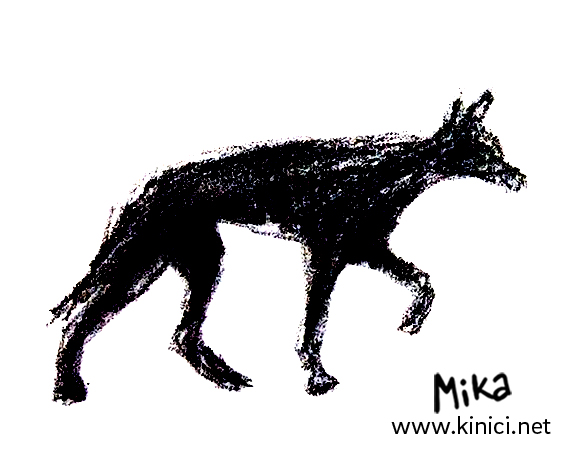There are two types of hunters or two ways of social behaviour during a hunt.
 1. Social hunters: Wolf, Jackal, African Wild Dog, Dhole, Raccoon Dog, Dingo and Domestic Dog. They hunt in pairs, smaller or bigger packs. Coyotes usually hunt in pairs, but sometimes group to catch a bigger prey or run it out of underground dens. Wolves and African Wild Dogs are perhaps most social animals that hunt on the land and are certainly most social out of all other canids. Every member of a pack has distinct role, particular strength that helps the group. Some members are good trackers, others distinctively cunning, fast or strong, helping to knock down a large animal. Communication during the hunt is crucial. Considering that they hunt in groups and do it as a well-coordinated team, when all specimens have the same goal too, they are capable of catching a prey much bigger and stronger than themselves. A pack will hunt for biggest animal available.
1. Social hunters: Wolf, Jackal, African Wild Dog, Dhole, Raccoon Dog, Dingo and Domestic Dog. They hunt in pairs, smaller or bigger packs. Coyotes usually hunt in pairs, but sometimes group to catch a bigger prey or run it out of underground dens. Wolves and African Wild Dogs are perhaps most social animals that hunt on the land and are certainly most social out of all other canids. Every member of a pack has distinct role, particular strength that helps the group. Some members are good trackers, others distinctively cunning, fast or strong, helping to knock down a large animal. Communication during the hunt is crucial. Considering that they hunt in groups and do it as a well-coordinated team, when all specimens have the same goal too, they are capable of catching a prey much bigger and stronger than themselves. A pack will hunt for biggest animal available.

2. Individual hunters: Foxes, Bush Dog, Maned Wolves. They live and hunt alone, except when they mate and raise cubs. Individual hunters have much simpler body language because of lack of intricate (complex) relations. The tail of the fox is not as waggy as wolf's and ears are not as mobile.
